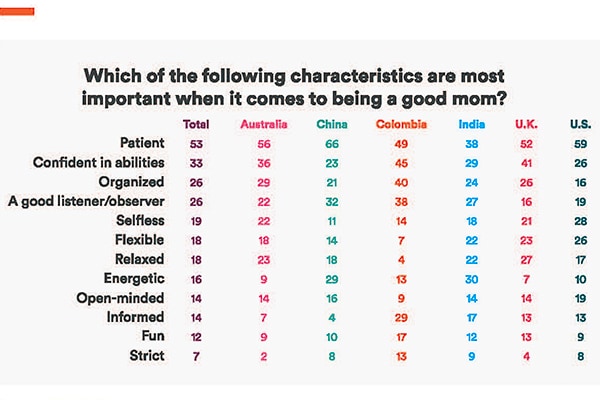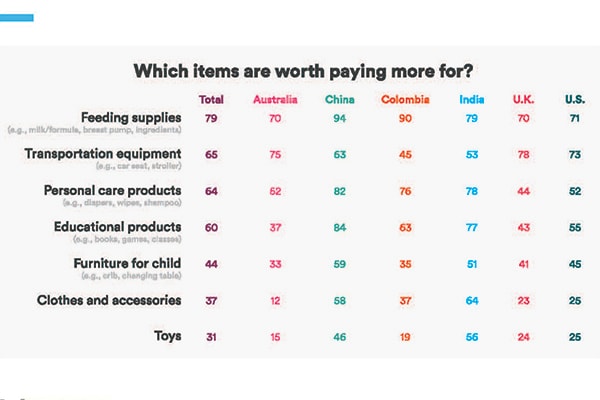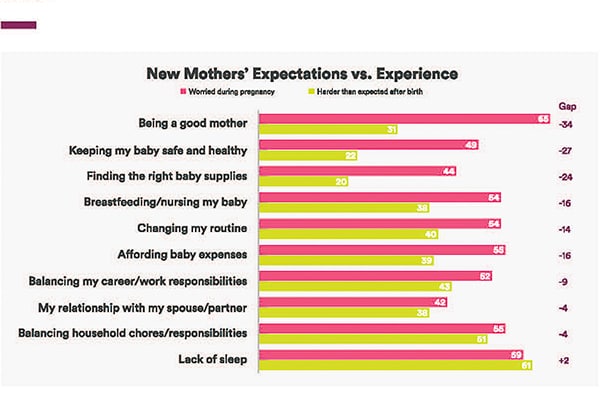A brands' guide to understanding mothers across borders
A study by MullenLowe provides insights on market differences that shape motherhood and how brands can improve their communication accordingly


Did you know that mothers in India are 95 percent more likely to encourage their children to reach milestones ahead of schedule as compared to moms in other countries? Or that an Indian mom is 36 times more likely to believe that ‘child comes first’ than an Australian mom?
These are some of the findings from a recent study titled ‘Global Motherhood Survey’, carried out by Frank About Women, a 14-year-old global think tank founded by the advertising and marketing communications agency MullenLowe to improve marketing communication for women. The study was carried out in Australia, China, Colombia, India, UK and the US.
Mothers control 85 percent of home purchases and wield an estimated annual buying power of $2.1 trillion in the US, and by 2017 the baby care category alone will reach $67 billion. It is thus imperative for brands to build strong, meaningful connections with women to sustain growth and profitability. This prompted the study to focus on moms and examine the similarities and differences of global motherhood. It also highlights how brands can reach out to these consumers better.
Biggest concernsSome of the biggest concerns of mothers globally are being a good mother, lack of sleep and balancing household and work responsibilities. Here, instead of playing on her insecurities, brands must offer her ways to simplify with relevant and tangible brand or product benefits, suggests the study.
The good mom
Globally, moms agree that the top three attributes of being a ‘good mother’ are patience, confidence in her abilities and being a good organiser and listener. Being strict was the least important trait. The bottom line for brands here is that no mom wants to know she is failing. The key is to support her sense of confidence.The ‘child comes first’ norm
When it comes to selflessness vs. self-care, the study finds that most moms just accept the culturally reinforced idea that now it’s all about the baby. 82 percent mothers in the US said they were blindsided by conversations post delivery, as the concern shifts from the mother’s health to the child’s. Brands and products thus have a tremendous opportunity to teach mom the value of putting herself first and embrace self-love and self-care as a regular occurrence and not a negotiated event.
Bucking the trend
Almost 75 percent of moms globally said they cannot resist comparing their child’s development to that of other kids. This was found to be 90 percent in China. ‘Indian mothers don’t just compare, they are also the most anxious and obsessed in this regard compared to other countries,’ notes the study.
Brands also need to pay attention to the differing perceptions of mothers on how to support their child’s development. For instance, 79 percent of Colombian moms and 62 percent Indian moms feel that early access to technology is harmful to kids. But 60 percent of Chinese moms want children to experience technology at an early age. These local norms and subtleties could alter a product’s positioning and brand.
Budget Buying Moms in India and China tend to disregard their budget most when it comes to shopping for their child. Feeding supplies, transportation equipment and personal care products are amongst the top three items worth paying for. However, two-thirds of moms globally are disappointed with products they purchased during pregnancy.
Moms in India and China tend to disregard their budget most when it comes to shopping for their child. Feeding supplies, transportation equipment and personal care products are amongst the top three items worth paying for. However, two-thirds of moms globally are disappointed with products they purchased during pregnancy.
With disappointment so high, loyalty is bound to be fleeting, and brands thus need to develop a relationship before the child is born. Even if she if disappointed, she will give you a longer leash to falter rather than falter you for a single failure.
First Published: Jun 02, 2016, 14:21
Subscribe Now